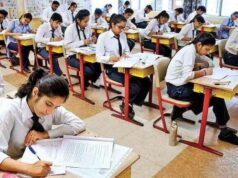At UNSC, Putin will join Modi in the open debate on maritime security
Participation of world leaders part of global message about consensus over Indian leadership
Russian President Vladimir Putin will join the open debate on maritime security that Prime Minister Narendra Modi will preside over on Monday at the U.N. Security Council as India holds the Presidency for the month. The Embassy of India in Russia has announced that President Putin will participate in the event through video conference which is expected to prompt participation of other top world leaders in the session .
The participation of world leaders in the session is part of the broader global message about the consensus over India providing leadership of the UNSC as the world deals with conflicts in Afghanistan, Myanmar and Yemen among others. The post of the President of the United Nations is crucial but it also exposes the vulnerabilities of the office bearer.
The current stint is the eighth time that India has held the Presidency of the top U.N. body. The last time India held the position was a decade ago during 2011-12. Similar stints were served during 1950-51, 1967-68, 1972-73, 1977-78, 1984-’85 and 1991-92. Yet out of all the tenures, it is the first in 1950-51 that left lasting lessons about how difficult international affairs can be at the level of the chair of the President.
Almost all the stints had come at crucial junctures in world history where India’s role added to resolving the crises on the table. But it was in 1950-’51 that the issue of Kashmir took a critical turn at the Security Council which took the Indian delegation by surprise. India was still struggling with the initial phase of freedom and the Kashmir issue had opened up almost immediately with the war of 1947-’48. The issue arrived at the U.N. on January 1, 1948 as India urged the UNSC to discuss the battle that began with the invasion of tribal irregulars from Pakistan.
The Indian submission marked the origin of the “Jammu and Kashmir Question”. The title of the dispute was changed on January 22, 1948 to “The India-Pakistan Question”.
Tricky domestic situation
As India tried to find its diplomatic position on a tricky domestic situation for which it had sought a discussion at the global platform, the post-colonial sentiments were unfolding at the Commonwealth that created temporary negative trends with relation with the United Kingdom, the most powerful past colonial power of South Asia. Pakistan under Prime Minister Liaquat Ali Khan wanted to raise the issue during the 1951 Commonwealth Heads of Govermenment meeting.
The Commonwealth was in its early phase and ties between the U.K. and India were yet to be smoothened fully. Through a series of exchanges India refused to allow the discussion on Kashmir. The issue however came up ‘informally’ among the Prime Ministers of India, U.K., Australia, Pakistan, Sri Lanka and New Zealand. India avoided a humiliation. But worse was in store at the UNSC.
The period from 1948-1951 was heated as far as the Kashmir issue was concerned as there was little flexibility on display by either India or Pakistan as the U.N. involvement through the first UN Representative Owen Dixon failed to resolve the situation.
This was also the period of the Korean war in which India began to play a role as the President of the UNSC that it assumed in 1950. The principled position on the Korean crisis however sat uncomfortably with the dispute in which India obviously had an upper hand with the accession of the erstwhile princely kingdom of Jammu and Kashmir ahead of Pakistan’s invasion. This phase also coincided with India’s hesitation with joining the western block in the Cold War.
Anglo-American resolution on Kashmir
In this backdrop, on March 30, 1951, the UNSC took up an Anglo-American resolution on Kashmir and laid out a process of continuation that would give the Kashmir issue a long shelf life at the UNSC where it was formally taken up last time in 1971 before the August 2019 discussion on the issue by China in the backdrop of India’s abrogation of Article 370 by the government of Prime Minister Modi.
What was particularly embarrassing about the 1951 resolution was that the Kashmir issue concerned the President of the UNSC — India — and yet neither the U.S. nor the U.K. hestitated from going ahead with it. The Resolution 91 decided to replace the United Nations Commission for India and Pakistan (UNCIP) with UNMOGIP (UN Military Observer Group in India and Pakistan). It also decided to appoint a U.N. Representative for India and Pakistan in continuation of the role of Sir Owen Dixon.
The second decision almost institutionalised the Kashmir issue in the U.N. that amounted to the creation of the “third party” that India opposed. The context for the humiliation that India faced remains varied — from Cold War arm twisting to containing India’s global stature. However, it had an effect on the evolving diplomatic relationships of India.
Prime Minister Jawaharlal Nehru who was cautious with the Cold War bloc politics would then go on to form the non-alignment bloc joining hands with Gamal Abdel Nasser of Egypt. Though Mr. Nehru maintained warm relation with both the U.S. and the U.K., India’s tough position on third world issues was on display with Egypt clashing with the U.K., France and Israel in 1956 in the Suez Crisis.
In response to the Anglo-French-Israeli aggression, the Indian leader threatened to withdraw India from the Commonwealth. The position of the President of the UNSC is therefore a responsibility that also creates vulnerabilities for the office bearer.
The current Presidency too has come at a time when the UNSC is dealing with issues like Afghanistan and Myanmar where the big power rivalry is intense. A lot depends on how deftly India conducts its role through these compelling issues.
Open debate on maritime security
A big messaging may take place on August 9 itself when PM Modi will preside the open debate on maritime security mainly because the date also coincides with the historic Quit India movement and the upcoming 75th anniversary of Independence. The list of participants in the discussion will be keenly watched.
Among the P-5 members, Russia has declared that President Putin will participate. Similar high level participation from other member countries will be interpreted as a sign of consensus support to the Indian role in the UNSC



